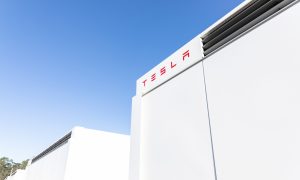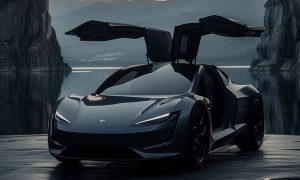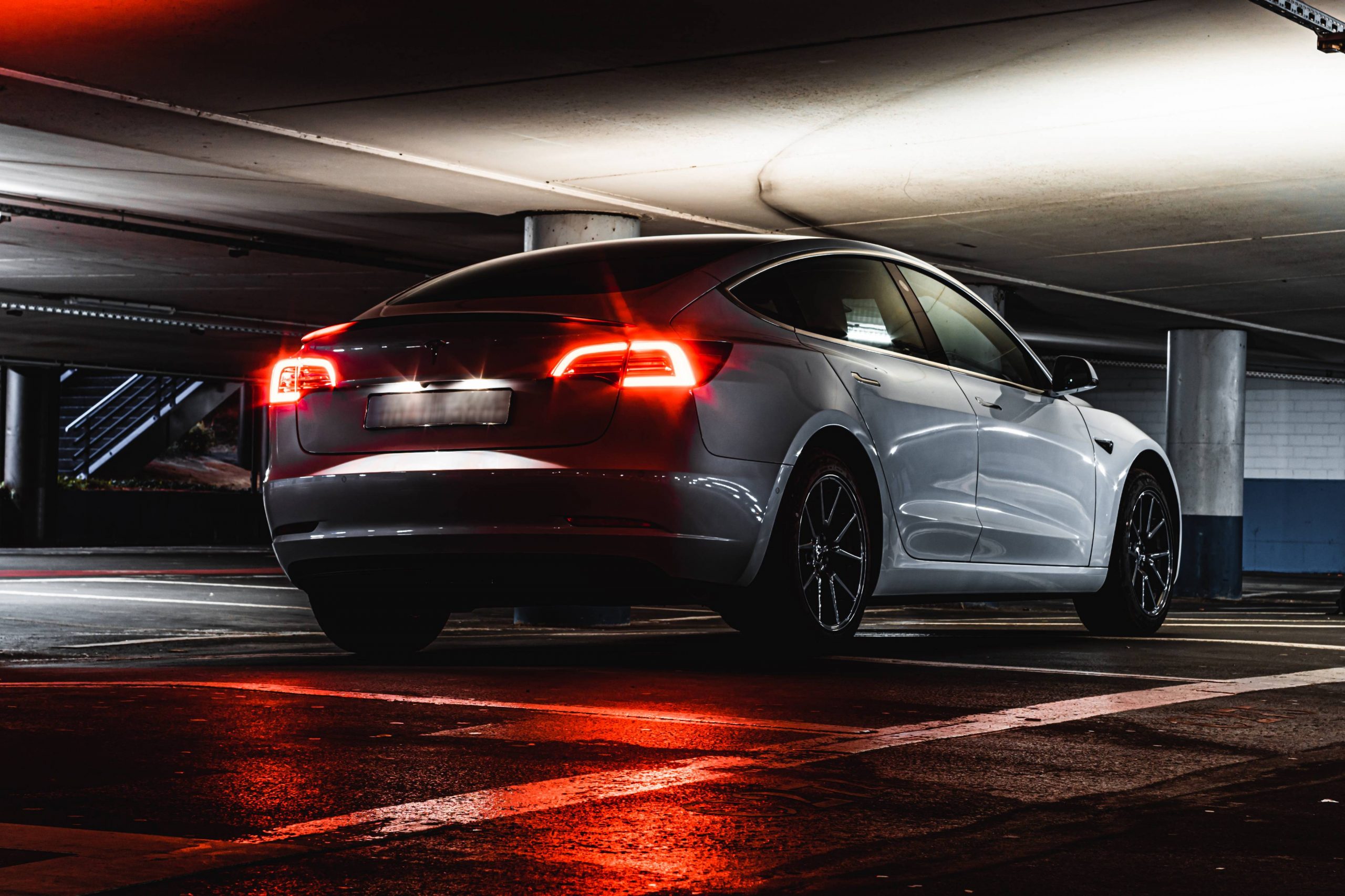

News
Teslas and other EVs could enter a golden decade with newly-introduced US bill
Teslas and other electric cars may very well enter a golden age of sorts in the United States, if a newly-proposed bill makes it through. Dubbed as the Electric CARS Act, the bill aims to update the EV tax credit by extending it for ten years and removing the number of eligible vehicles per manufacturer. The bill also seeks to support the buildout of more electric car charging infrastructure.
A federal tax credit of up to $7,500 is currently available for customers who purchase an electric vehicle. However, the current system phases out this credit after an automaker sells its first 200,000 electric cars. Tesla and General Motors have both passed this threshold, which means buyers of both companies’ electric vehicles no longer receive their $7,500 tax credit. With this system in place, the United States practically makes incentives for car buyers to purchase imported EVs instead of those from local automakers like GM.
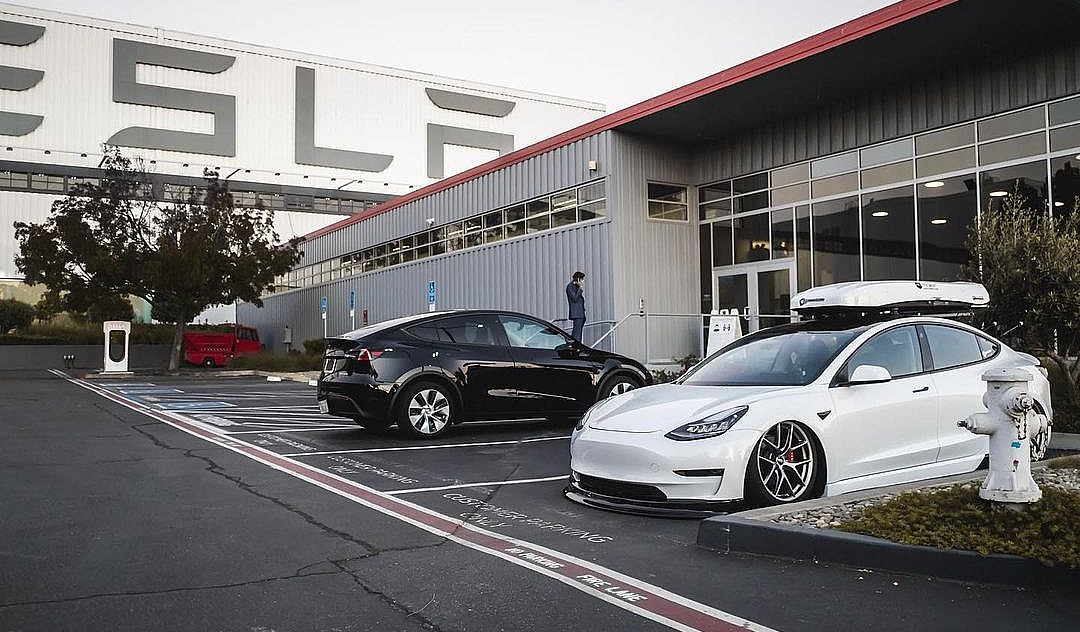
Tesla, for its part, has been pushing its electric vehicles without the $7,500 tax credit since the end of 2018 (reduced credits were implemented over 2019), when the company passed its 200,000-vehicle threshold. Fortunately, Tesla’s vehicles like the Model 3 and Model Y have stood well on their own merits, garnering critical and consumer support even without tax credits. If the Electric CARS Act passes, companies like Tesla could make an even stronger push into the automotive sector.
The Electric CARS Act aims to improve the federal tax credit through the following means:
- The elimination of the cap for EV makers. The bill would allow consumers access to the tax credit for the next ten years, regardless of the manufacturer they buy their EV from. Under these terms, even Tesla and GM electric car buyers would be able to get their tax credits once more.
- A 5-year use period. The bill would allow buyers to use their respective tax credits over a 5-year period, meaning that EV customers could apply the credit either at the point of purchase or later on. Such a system would make the tax credit more applicable to buyers without large tax liabilities.
- Charging infrastructure support. The bill would provide a 10-year extension of tax credits for alternative fuel vehicles and charging infrastructure. This incentivizes the buildout of EV charging systems like Tesla’s Supercharger Network and other rapid charging services like Electrify America.
The Electric CARS Act is sponsored by Jeff Merkley (D-OR) and Rep. Peter Welch (D-VT), both of whom highlighted the importance of the electric vehicle sector in the United States. In a statement to Channel 21 News, Merkley stated that the bill is apt considering the ongoing climate chaos. He also highlighted the importance of supporting EVs made by American workers in American factories.
“As climate chaos continues to ramp up with record-setting winter storms, violent hurricanes, and catastrophic wildfires, it is imperative that we transition away from gasoline-powered vehicles, which are fanning the flames of the crisis. Consumers are already looking for electric cars, and this bill will help drive adoption faster—and make sure more of those cars are made by American workers in American factories,” Merkley said.
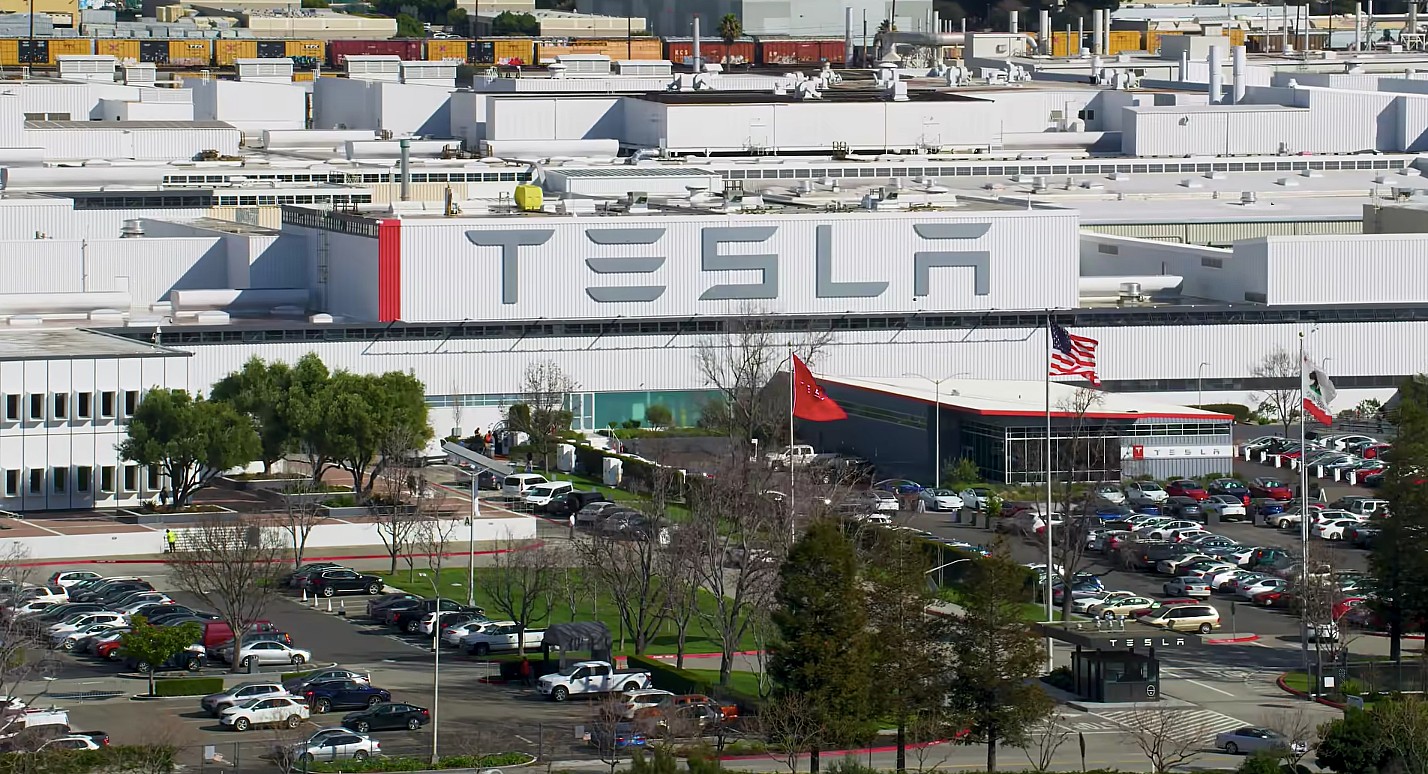
Welch, for his part, explained that supporting electric cars would be a common-sense win for consumers, especially considering that EVs are practical to own.
“We need to quickly and aggressively invest in electric vehicles to combat the global climate emergency that threatens all of our local communities. Owning an electric vehicle can be cheaper and offers significant public health and environmental benefits, but for many Americans, they are unaffordable at the dealership. This bill makes the next generation of electric vehicles accessible to more people by allowing them to receive the electric vehicle tax credit right away. Encouraging electric vehicle adoption is a common-sense win for consumers, the environment, and American workers,” Welch noted.
Led by Tesla and its S3XY line, electric vehicles have disrupted the automotive industry, even without the presence of the $7,500 tax credit. With the Electric CARS Act in effect, companies like Tesla could reach an even bigger consumer market, bringing EVs further into mainstream buyers. Ultimately, the newly-proposed bill has the potential to usher in a golden age of electric cars in the United States. After all, if Tesla could emerge as a competitive automaker even without the country’s primary EV incentive, one could only imagine the heights the company could reach with less handicaps.
The text of the Electric CARS Act could be viewed below.
21.02.23 Electric Cars 2021 by Simon Alvarez on Scribd
Don’t hesitate to contact us for news tips. Just send a message to tips@teslarati.com to give us a heads up.
News
Tesla Robotaxi has already surpassed Waymo in this key metric
Tesla Robotaxi has already overtaken Waymo in Austin in one key metric, but there’s still more work to do.

Tesla Robotaxi has already surpassed Waymo in one extremely important key metric: size of service area.
Tesla just expanded its service area in Austin on Monday morning, pushing the boundaries of its Robotaxi fleet in an interesting fashion with new capabilities to the north. Yes, we know what it looks like:
🚨 Tesla’s new Robotaxi geofence is…
Finish the sentence 🥸 pic.twitter.com/3bjhMqsRm5
— TESLARATI (@Teslarati) July 14, 2025
The expansion doubled Tesla Robotaxi’s potential travel locations, which now include the University of Texas at Austin, a school with over 53,000 students.
The doubling of the service area by Tesla has already made its travel area larger than Waymo’s, which launched driverless rides in October 2024. It became available to the public in March 2025.
According to Grok, the AI agent on X, Tesla Robotaxi’s current service area spans 42 square miles, which is five square miles larger than Waymo’s service area of 37 square miles.
Tesla Robotaxi (red) vs. Waymo geofence in Austin.
Much can be said about the shape… but the Robotaxi area is now ~3.9 mi² (10 km²) larger than Waymo’s!! pic.twitter.com/dVfh2ODxJC
— Robin (@xdNiBoR) July 14, 2025
The service area is one of the most important metrics in determining how much progress a self-driving ride-hailing service is making. Safety is the priority of any company operating a ride-hailing network, especially ones that are making it a point to use autonomy to deploy it.
However, these companies are essentially racing for a larger piece of the city or cities they are in. Waymo has expanded to several different regions around the United States, including Arizona and Los Angeles.
Tesla is attempting to do the same in the coming months as it has already filed paperwork in both California and Arizona to deploy its Robotaxi fleet in states across the U.S.
As the platform continues to show more prowess and accuracy in its operation, Tesla will begin to expand to new areas, eventually aiming for a global rollout of its self-driving service.
News
Tesla Megapacks arrive for massive battery replacing coal plant
Tesla Megapacks have started arriving on-site to the Stanwell Battery Project, just as Queensland prepares to wind down the Stanwell coal plant.
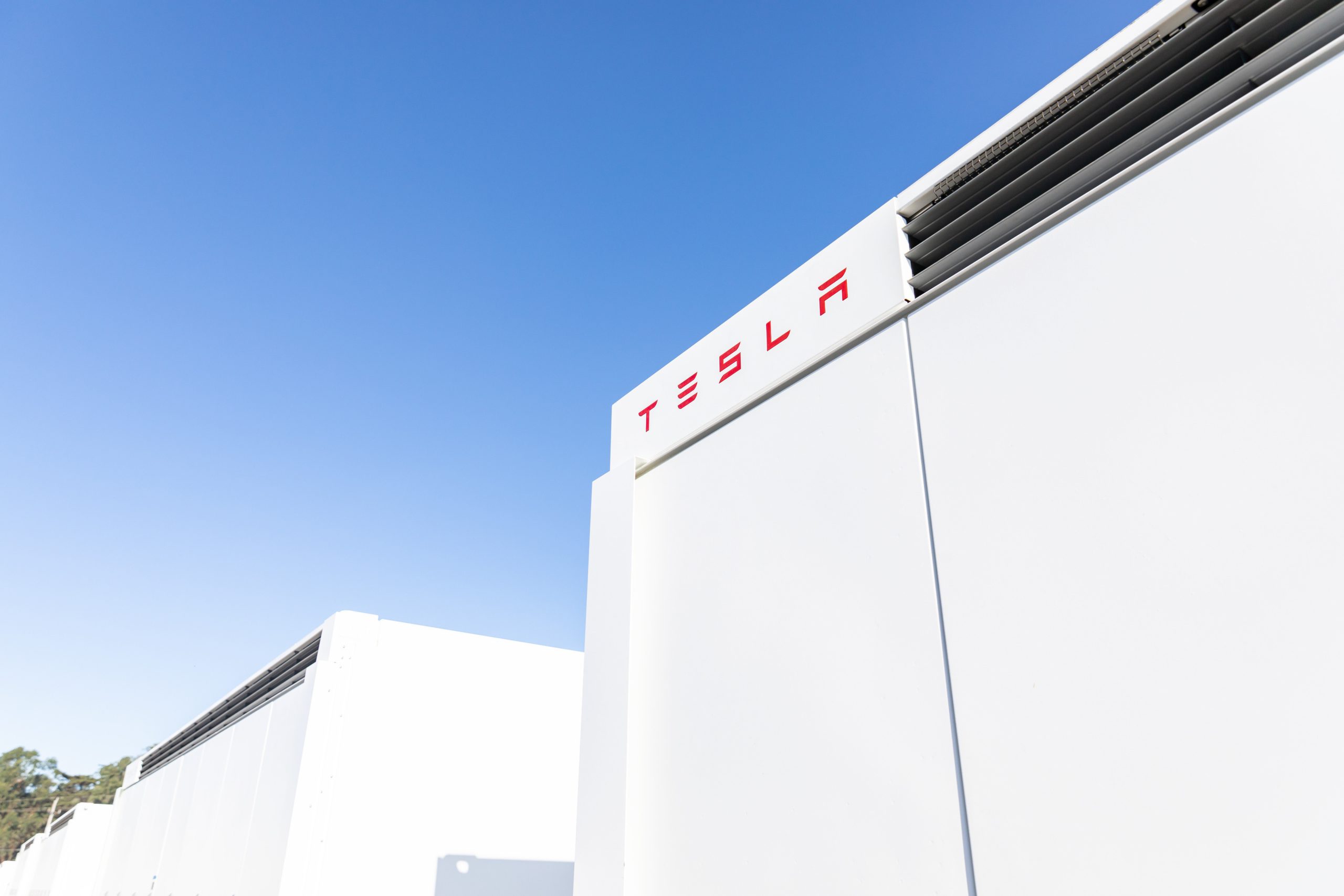
The first of over 300 Tesla Megapacks have arrived to the site of a massive battery energy storage system (BESS) being built in Australia, dubbed the Stanwell Battery Project after a coal plant it’s set to replace.
In a press release last week, the Stanwell Battery Project announced that the first Tesla Megapack 2XL units had arrived to the site, which is located outside of Rockhampton in Queensland, Australia. The project will eventually feature 324 Megapack units, set to arrive in the coming months, in order to support the 300MW/1,200MWh battery project.
“The Stanwell Battery is part of the diversification of our portfolio, to include cleaner and more flexible energy solutions,” said Angie Zahra, Stanwell Central Generation General Manager. “It is just one part of the 800 MW of battery energy storage capacity we have in our pipeline.
“Capable of discharging 300 MW of energy for up to four hours (1,200 MWh), our mega battery will be one of the largest in Queensland.”
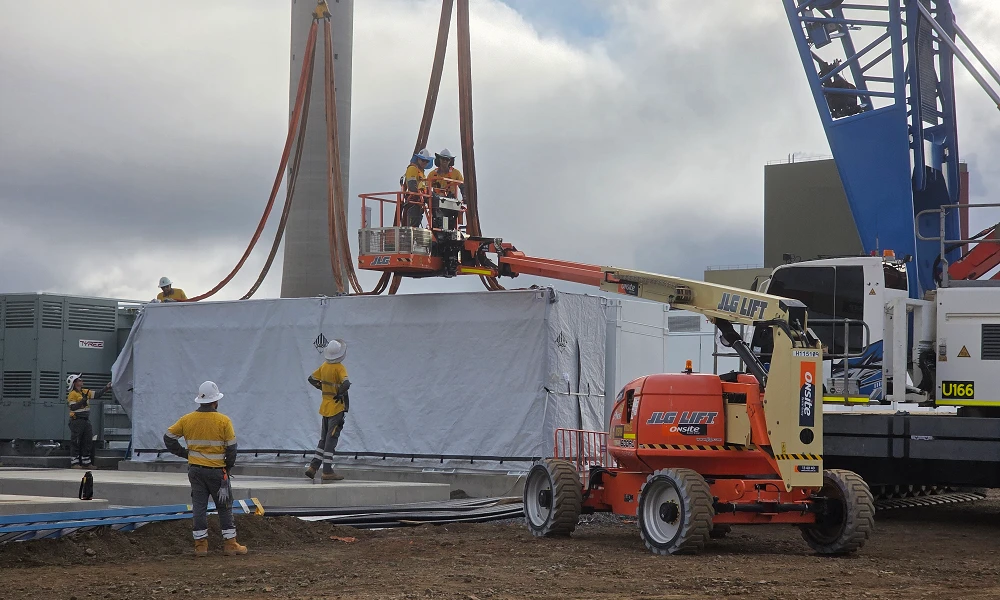
Credit: Stanwell
Did you know Tesla’s Lathrop facility churns out a Megapack every 68 minutes? That’s enough energy to power 3,600 homes for an hour per unit! ⚡️ pic.twitter.com/bG6fpHkB9O
— TESLARATI (@Teslarati) June 11, 2025
READ MORE ON TESLA MEGAPACKS: Tesla Lathrop Megafactory celebrates massive Megapack battery milestone
The state is working with government-owned company Yurika to facilitate construction, and the process is expected to create roughly 80 jobs. The project is expected to come fully online in May 2027, with initial commissioning of the Megapacks aiming for November 2025.
The Stanwell Battery is set to replace the nearby Stanwell coal generation plant, which the government is planning to wind down starting in 2026 as part of efforts to reach an 80 percent renewable energy generation ratio by 2035. Meanwhile, the government is also set to begin winding down the Tarong and Callide coal plants, while several other Megapack projects are being built or coming online. o ya
Tesla currently has two Megapack production facilities, located in Lathrop, California, in the U.S. and another that came online earlier this year in Shanghai, China. The Shanghai Megafactory shipped its first units to Australia in March, while both factories are expected to be capable of producing 10,000 Megapack units per year upon reaching volume production.
News
The Tesla Diner is basically finished—here’s what it looks like
The company first broke ground on the Diner, Drive-in, and Supercharger location in September 2023. Now, it has served one of its first internal customers.

Tesla has finally completed the construction of its highly anticipated Diner, Drive-in, and Supercharger in Los Angeles, and recent photos of the interior’s “retro-futuristic” style are making their way around the internet.
X user Brad Goldberg shared photos from the Tesla Diner site last Tuesday, depicting some of the Supercharger stalls, indoor and outdoor seating areas, multiple neon lights, and even an Optimus robot. Goldberg also noted that there had been a “flurry of activity on site” while he was snapping the photos last week, suggesting that the restaurant location could be getting close to opening.
The Tesla Diner also served one of its first internal customers in the past few days, as Elon Musk posted on X on early Monday morning that he had just finished up eating a meal at the site:
I just had dinner at the retro-futuristic Tesla diner and Supercharger.
Team did great work making it one of the coolest spots in LA!
The photos also show that the site is pretty much done, with some of them even showing vehicles charging at the charging stalls.
You can see some of the latest photos of the Tesla Diner below.
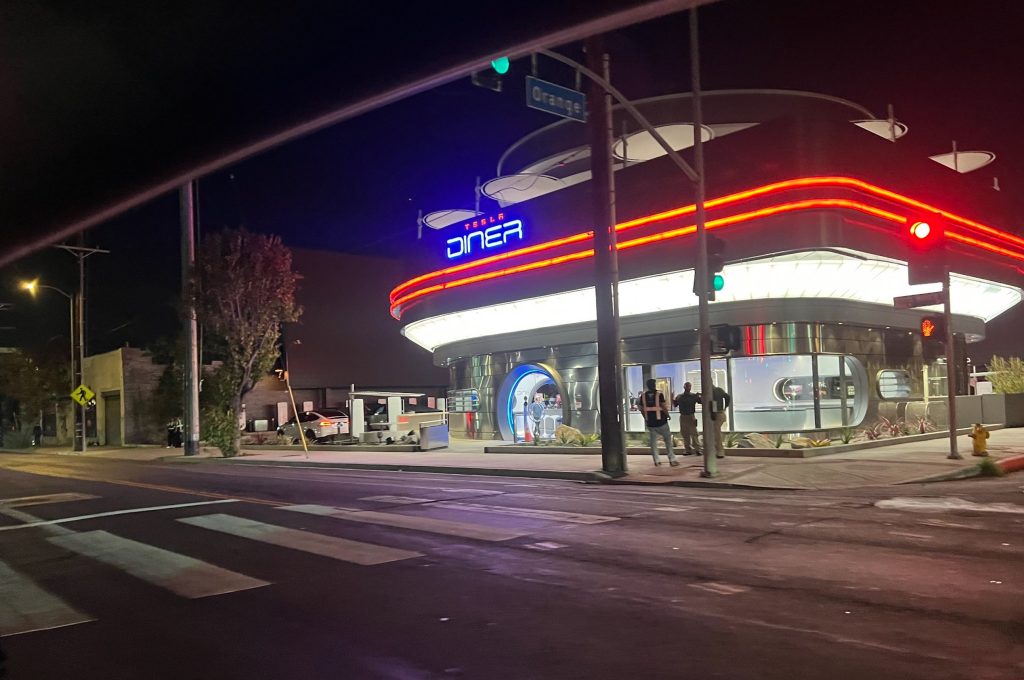
Credit: BradGoldbergMD | X
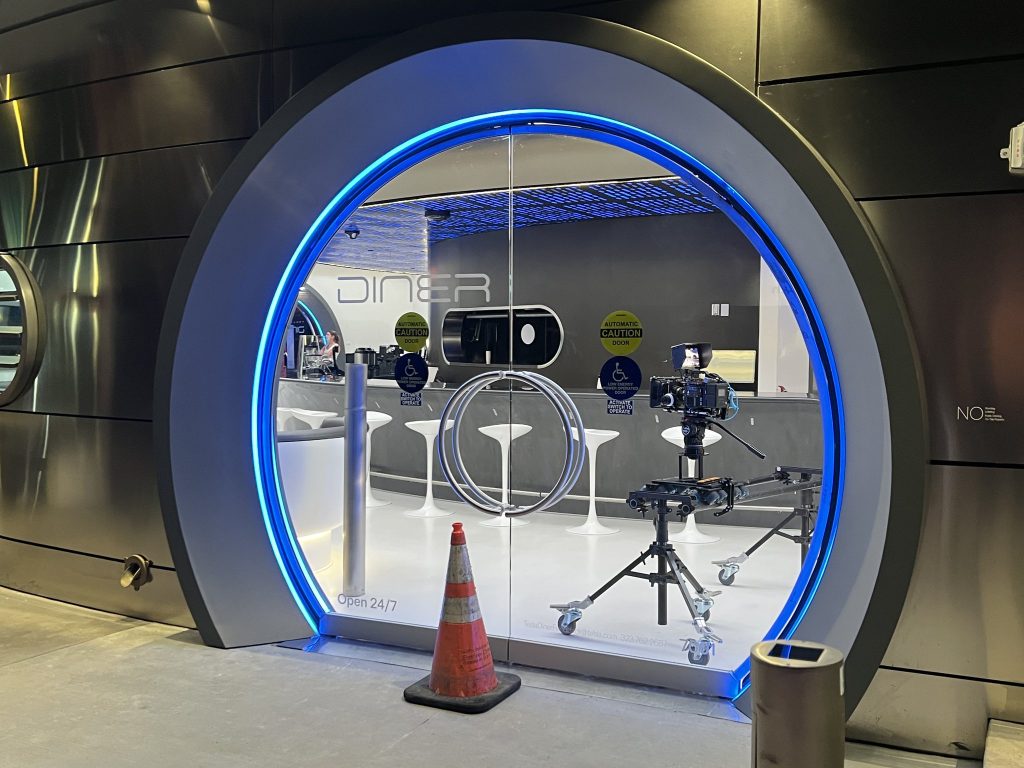
Credit: BradGoldbergMD | X
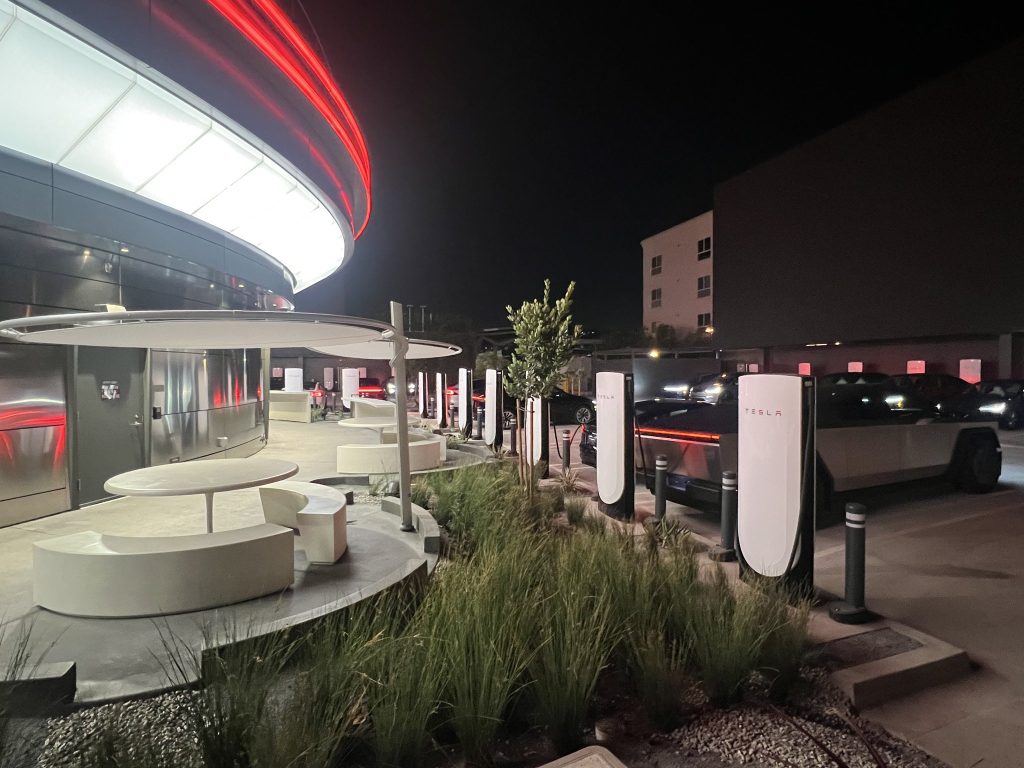
Credit: BradGoldbergMD | X
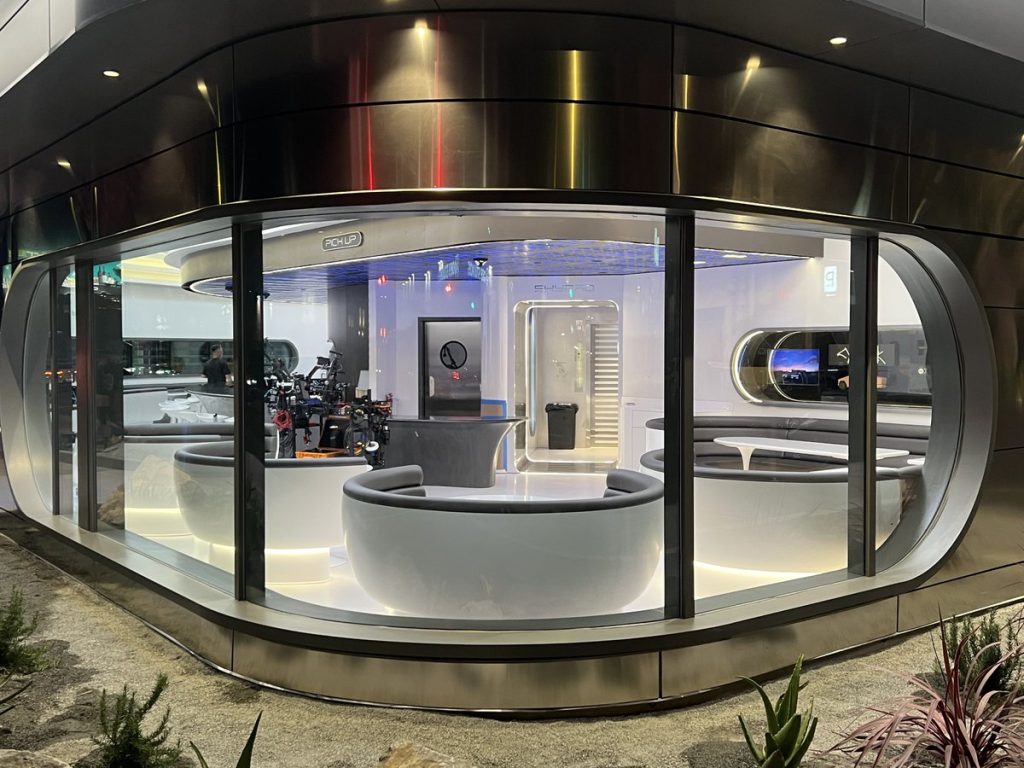
Credit: BradGoldbergMD | X
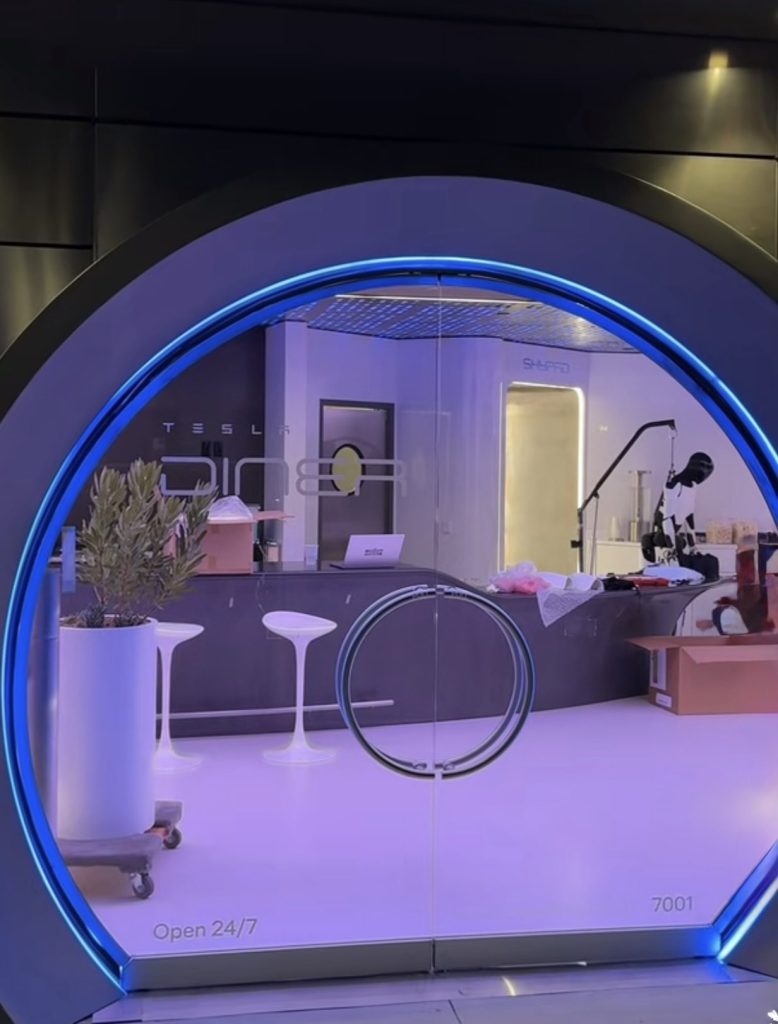
Credit: TeslaKing420 | X
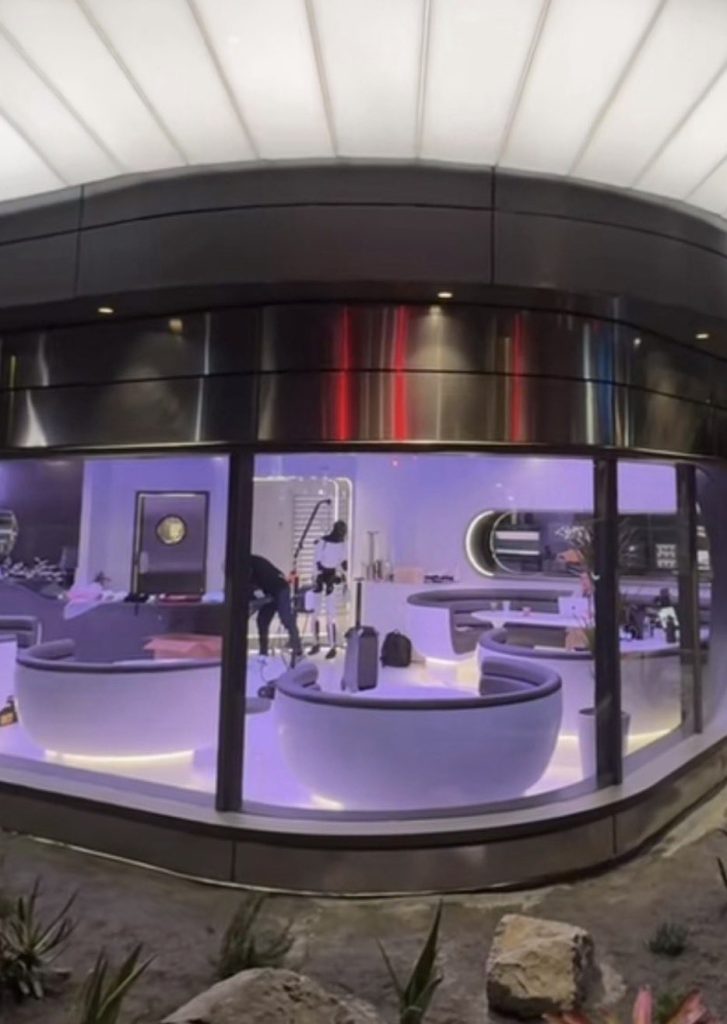
Credit: TeslaKing420 | X
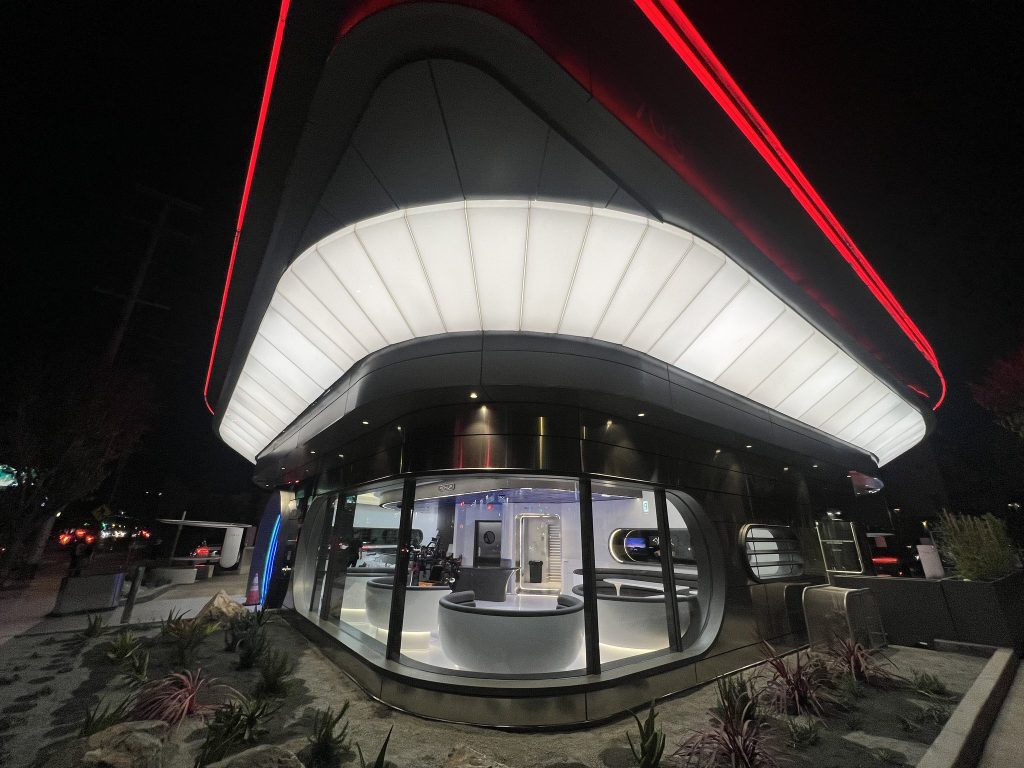
Credit: Brad Goldberg (via Sawyer Merritt on X)
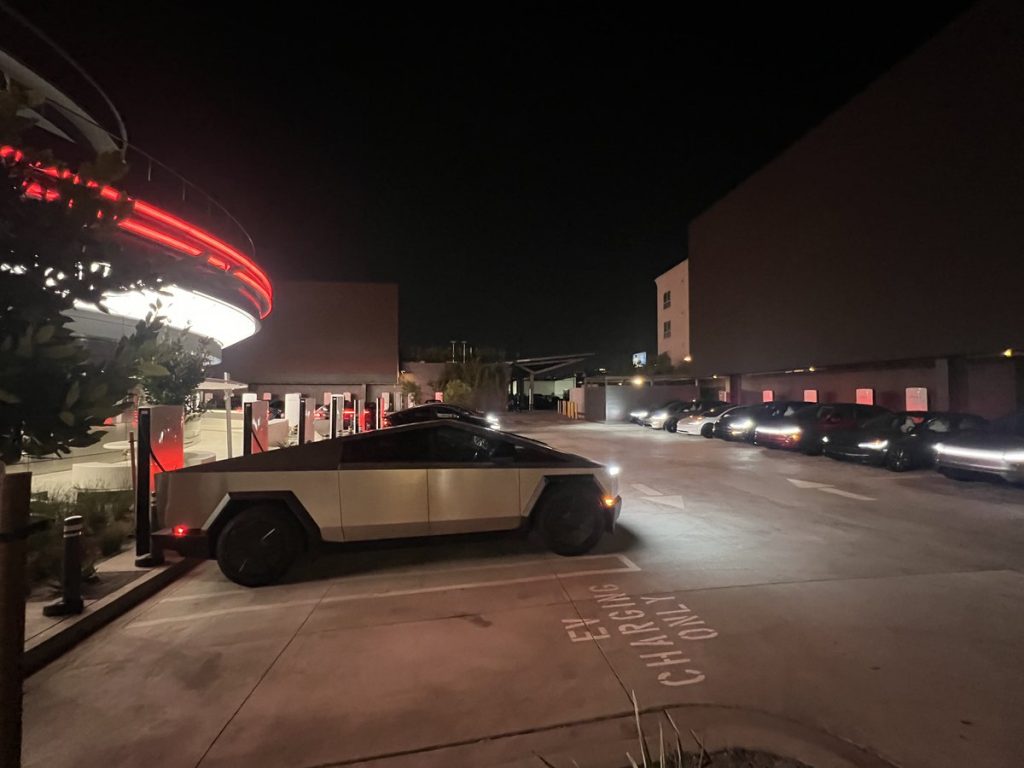
Credit: Brad Goldberg (via Sawyer Merritt on X)
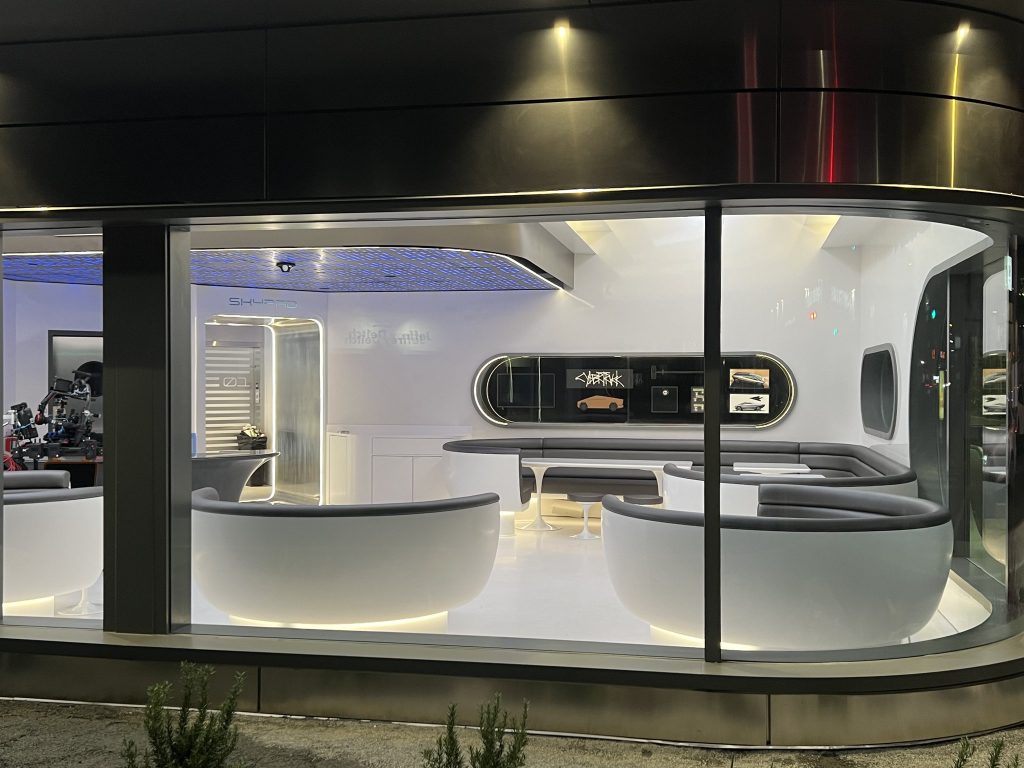
Credit: Brad Goldberg (via Sawyer Merritt on X)
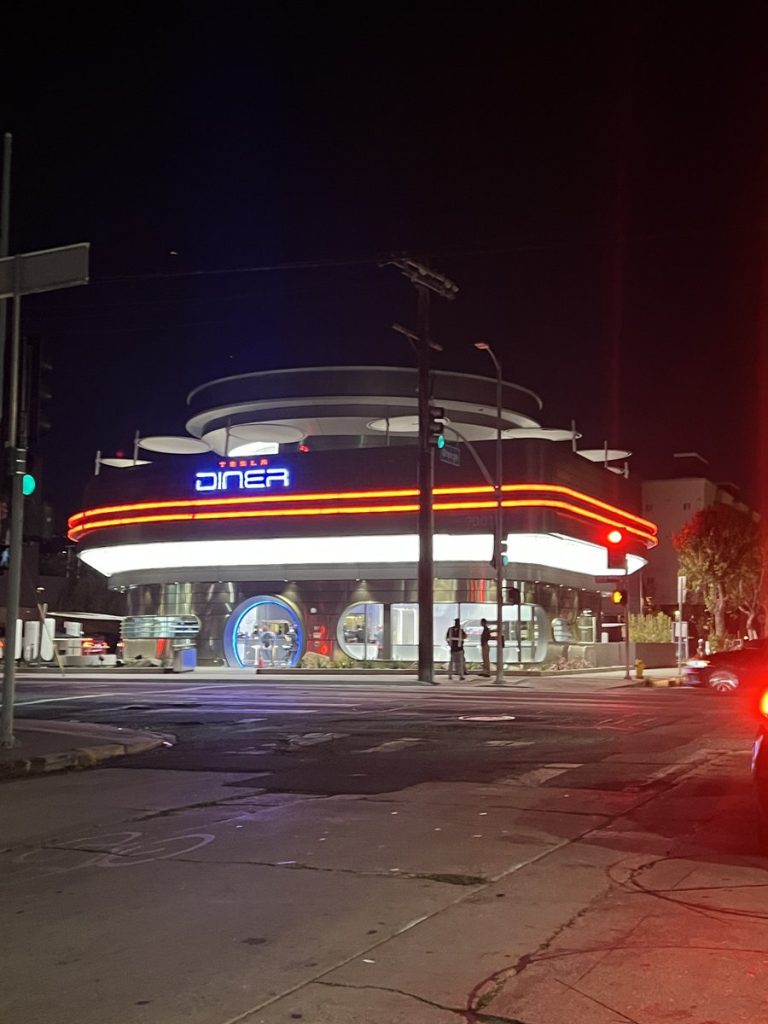
Credit: Brad Goldberg (via Sawyer Merritt on X)
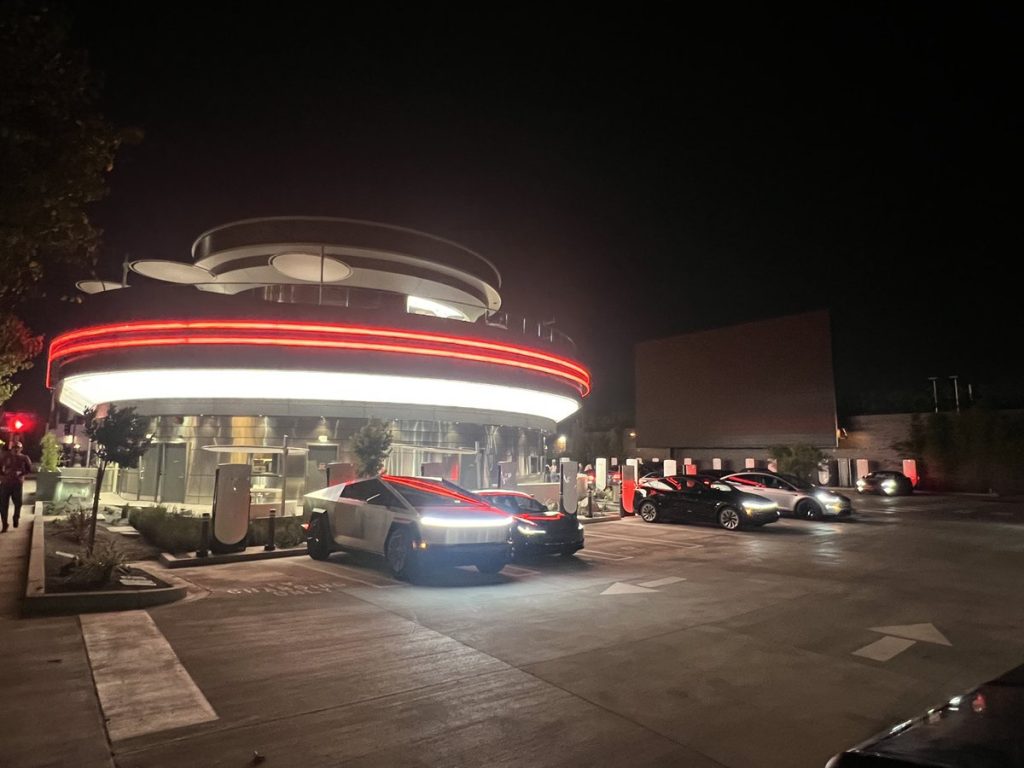
Credit: Brad Goldberg (via Sawyer Merritt on X)
READ MORE ON TESLA’S LA DINER: Tesla readies Drive-In Diner Supercharger for launch with app inclusion
When will the Tesla Diner open to external customers?
While it’s still not open to external customers yet, the news again suggests that the company could be close to an official opening date. Tesla first broke ground on the Diner in September 2023, after receiving a wave of building permit approvals throughout that year. Teslarati also covered much of the construction progress throughout last year, including when crews installed the first and second drive-in screens.
Located at 7001 West Santa Monica Boulevard, the idea was first discussed in 2018 by Musk and a few others on Twitter, featuring 1950s rock and roll, waiters on roller skates, and drive-in movie theater screens playing clips from some of history’s best movies. Notably, the photos of the front doors also show that the site will be open 24 hours a day, 7 days a week, whenever it does end up opening.
Tesla’s progress on Supercharger with diner, drive-in seen in aerial footage
-

 Elon Musk2 weeks ago
Elon Musk2 weeks agoTesla investors will be shocked by Jim Cramer’s latest assessment
-

 News2 days ago
News2 days agoTesla debuts hands-free Grok AI with update 2025.26: What you need to know
-

 Elon Musk4 days ago
Elon Musk4 days agoxAI launches Grok 4 with new $300/month SuperGrok Heavy subscription
-

 Elon Musk7 days ago
Elon Musk7 days agoElon Musk confirms Grok 4 launch on July 9 with livestream event
-

 News2 weeks ago
News2 weeks agoTesla Model 3 ranks as the safest new car in Europe for 2025, per Euro NCAP tests
-

 Elon Musk2 weeks ago
Elon Musk2 weeks agoxAI’s Memphis data center receives air permit despite community criticism
-

 News4 days ago
News4 days agoTesla begins Robotaxi certification push in Arizona: report
-

 Elon Musk2 weeks ago
Elon Musk2 weeks agoTesla scrambles after Musk sidekick exit, CEO takes over sales




